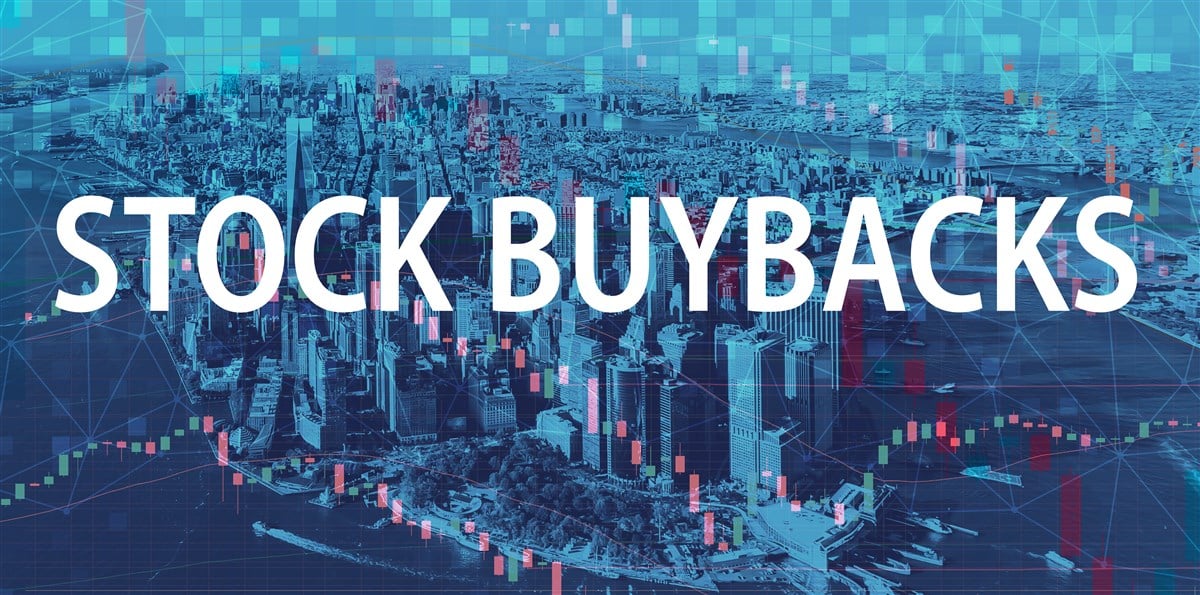
Investors tend to focus on two things when measuring the performance of their investments, particularly in stocks. The lion's share is taken by appreciation, the classic 'buy low and sell high' behavior, with a second focus on bragging about quarterly – and sometimes monthly – dividend income. However, there is one forgotten and more effective way to measure shareholder returns.
Stock buybacks are one of the most underrated ways to get rewarded as an investor. They allow the shareholder to own a larger piece of a company at no additional cost, not to mention their tax efficiency (more on that later).
More than that, the underlying message that management sends the market when implementing buybacks is twofold. First, it could mean that a stock is considered cheap. And second, that management expects its stock to appreciate in the short term. Three companies fitting these two characteristics are Ulta Beauty Inc. (NASDAQ: ULTA), Archer-Daniels-Midland Co. (NYSE: ADM), and even Simon Property Group Inc. (NYSE: SPG).
Stock Buybacks: It's Basically Free Money
Stock buybacks are typically funded in two ways. Ideally, companies will take away from free cash flow (operating cash flow minus capital expenditures) to buy back stock; others, however, choose to take on debt to buy back stock and artificially inflate their stock prices.
Investors need to realize that the same applies to dividends. Companies should use free cash flow to pay shareholders, never debt. Now, here's why buybacks are much better than dividends.
Sure, investors won't receive a 'paycheck' from the stock, but they are compounding their money more efficiently. Because free cash flow is considered income, it will be taxed. Dividends are also considered income, so they are also taxed.
Buying back stock not only avoids double taxation but also increases investor ownership, as they now own a larger piece of the pie. Ideally, the pie (company) is growing, where the natural effect of compounding comes into play.
Ulta's Profitability Makes for Irresistible Buybacks
[content-module:CompanyOverview|NASDAQ:ULTA]
According to the company's financials, Ulta stock generated an average return on invested capital (ROIC) rate of 25%. Because annual stock performance typically mirrors the long-term ROIC rate, Ulta stock makes for a potential wealth compounder, but is it at the right price?
Management thinks so, announcing a $2 billion buyback program, representing nearly 7.3% of the company's total shares. This company is considered part of the consumer staples sector, as consumers are likely to keep up with beauty and skincare products whether the economy is booming or busting.
Because of this, analysts see a consensus price target of $556.50 a share, calling for a 37% upside from where the stock trades today. More than that, this $20 billion behemoth is set to grow its earnings per share (EPS) by 10% this year. Trading at 71% of its 52-week high, the stock could be justifiably cheap enough for insiders to buy back.
A Farmer's Year Makes Archer-Daniels a Pick
[content-module:CompanyOverview|NYSE:ADM]
Retracing to 68% of its 52-week high, Archer-Daniels stock could be the top pick in the agricultural sector. Because global stocks-to-use ratios are at a cyclical low, farming stocks are setting up for a high production year, eventually needing to call on Archer-Daniels to store and transport harvested commodities.
A $2 billion buyback announcement, or roughly 6.4% of total shares, sends a message to investors that the stock could be cheap today. More than that, analysts at Bank of America Co. (NYSE: BAC) boosted their valuations to $74 for the stock, calling for a 23% upside from today's prices.
The company's financials show a return on equity (ROE) rate of roughly 15% over the past five years. Because the company carries very little debt (28% of total capital) on its balance sheet, it provides investors with a smooth ride as the Federal Reserve (the Fed) decides on the direction of interest rates this year.
A Resilient U.S. Consumer Gives Simon Room to Grow
[content-module:CompanyOverview|NYSE:SPD]
After hitting a 3-year high, U.S. consumer sentiment readings keep the economy going. According to the ISM services PMI index trends, the consumer is solely responsible for carrying the market this year, as the manufacturing PMI had contracted for over a year.
Another $2 billion buyback program means buying back up to 4.2% of total shares. This stock isn't as cheap as the others on this list on a price-action basis since it recently reached 90% of its 52-week high. However, compared to other real estate investment trusts (REITs), a 20.4x P/E ratio places Simon's stock at a 35% discount to the industry's 31.2x valuation.
A 93% institutional ownership level in the stock means safety for Main Street investors. Speaking of institutions, The Goldman Sachs Group Inc. (NYSE: GS) boosted their price targets on the REIT up to $161 a share as of December 2023, calling for a 13% upside from where it trades today.














